Over the past 7 years, tuberculosis (TB) preventive treatment (TPT) has been transformed. What once required six months of daily pills with difficult side effects can now be completed in one to three months using shorter, safer regimens. The cost has decreased dramatically, and new child-friendly formulations mean those most vulnerable and at risk can access quality care.
Behind this progress – that has seen access rapidly expand to over 100 countries – is an army of community health workers (CHWs) who dispel misconceptions about TB, raise awareness of risk factors and help link families to testing and critical treatment.
“When I know someone that has contracted TB and they have children who sleep with them in the same bed, I tell them to go to the hospital for testing,” says Mira Adama Kanu, a community health worker partnering with the Unitaid-funded IMPAACT4TB project in Sierra Leone. “Whether the children have it or not, they receive treatment to prevent any complications.”
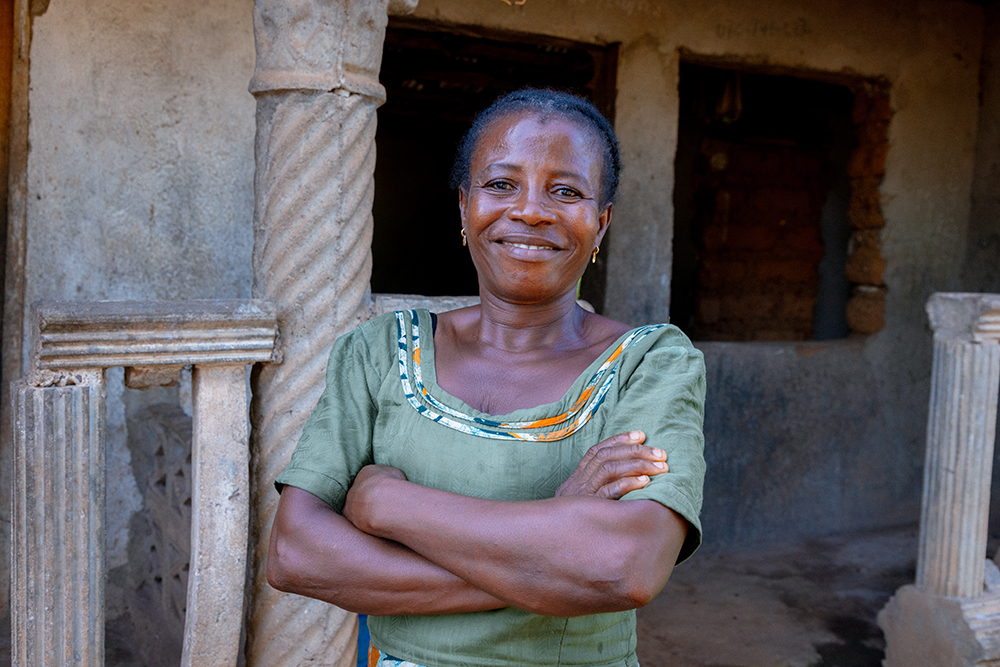
Since 2018, the IMPAACT4TB project, led by the Aurum Institute, has driven this expansion of TPT worldwide. In Sierra Leone, the project worked through CISMAT, a civil society organization that engages communities to increase awareness and generate demand for TB services, including TPT. CISMAT supports a network of CHWs who reach remote communities to deliver essential TB services. Through household contact tracing, they identify people who have been exposed to TB – focusing on those at greatest risk – and link them to care at community or primary healthcare centers.
Mira’s work shows how early identification and prevention protect the most vulnerable and reduce further transmission among their families and communities.
TB remains the world’s deadliest infectious disease, claiming over 1.2 million lives in 2024. More than 20,000 people are estimated to have TB in Sierra Leone, with children under five and pregnant women among those most vulnerable. Prevention is critical: one-quarter of the world’s population carries TB infection without symptoms and, of those, an estimated 5–10% will develop active disease if left untreated.
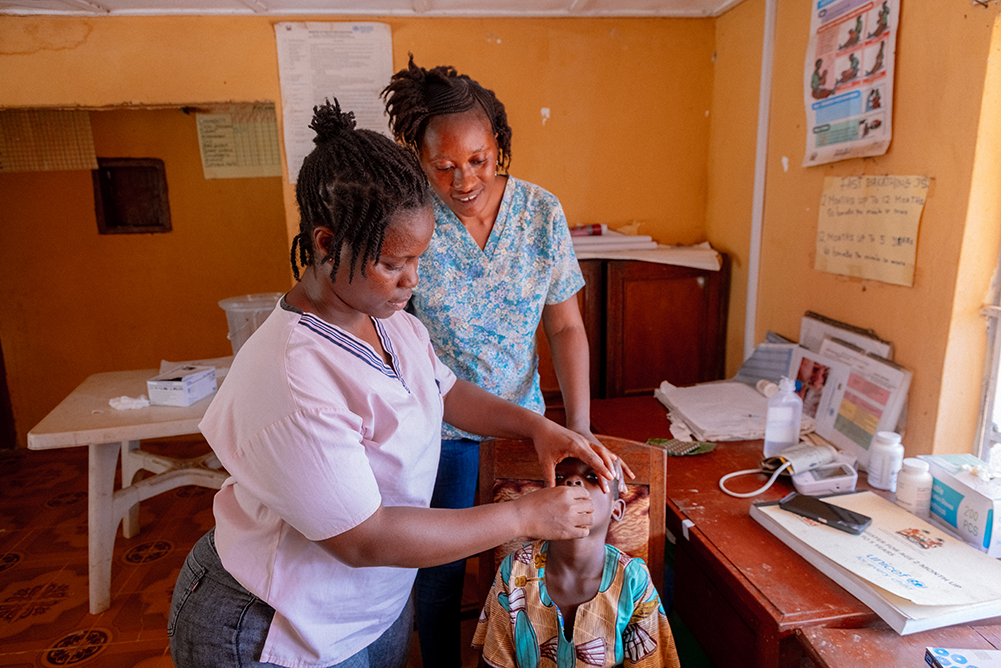
Community health workers also have an essential role in helping communities overcome stigma and misinformation – so they know that TB is a disease that can be prevented and cured.
“People have negative thoughts about TB. When they discover someone has the illness, they isolate and stigmatize them. They think it will spread to others, and that once someone has it, they never get well,” says Sheriff Koroma, a community health worker in Kambia Makama. “We let them know that even though they have it, TB is a sickness that can be treated, and they can get better.”
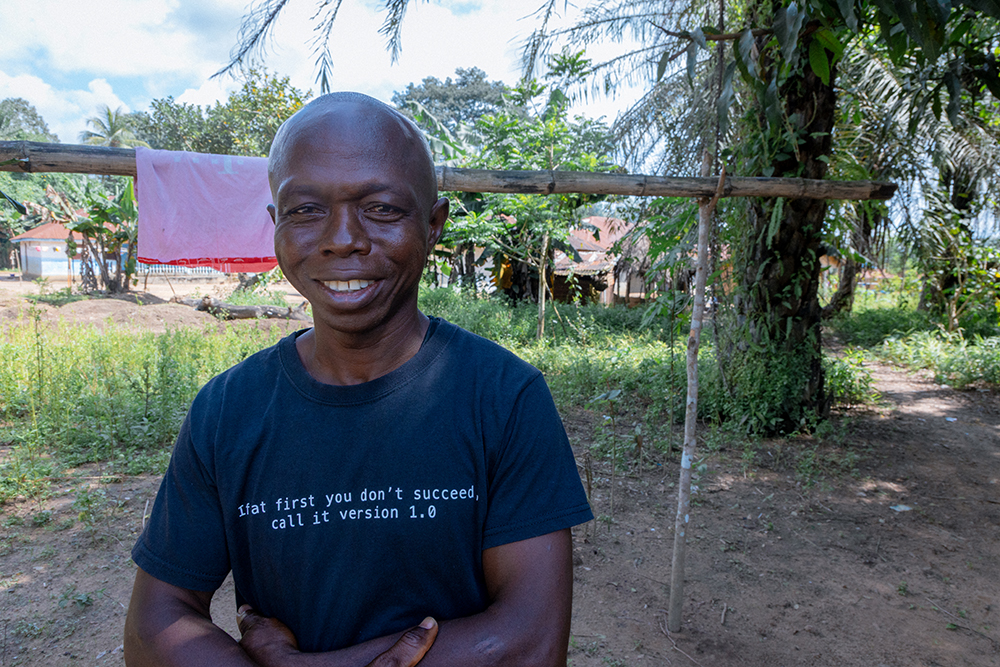
Thanks to the work of CHWs, many families exposed to TB have been diagnosed early and received preventive treatment or care, helping them recover and avoid severe illness or death. For families who have faced the fear and stigma of TB, this support has been life-changing.
When Fatmata’s grandson Joshua became seriously ill with TB, she sought care through CISMAT in the community. “If it wasn’t for CISMAT’s support, Joshua would have died,” she says. Because she lives with him and was therefore exposed to TB, Fatmata also took preventive treatment.
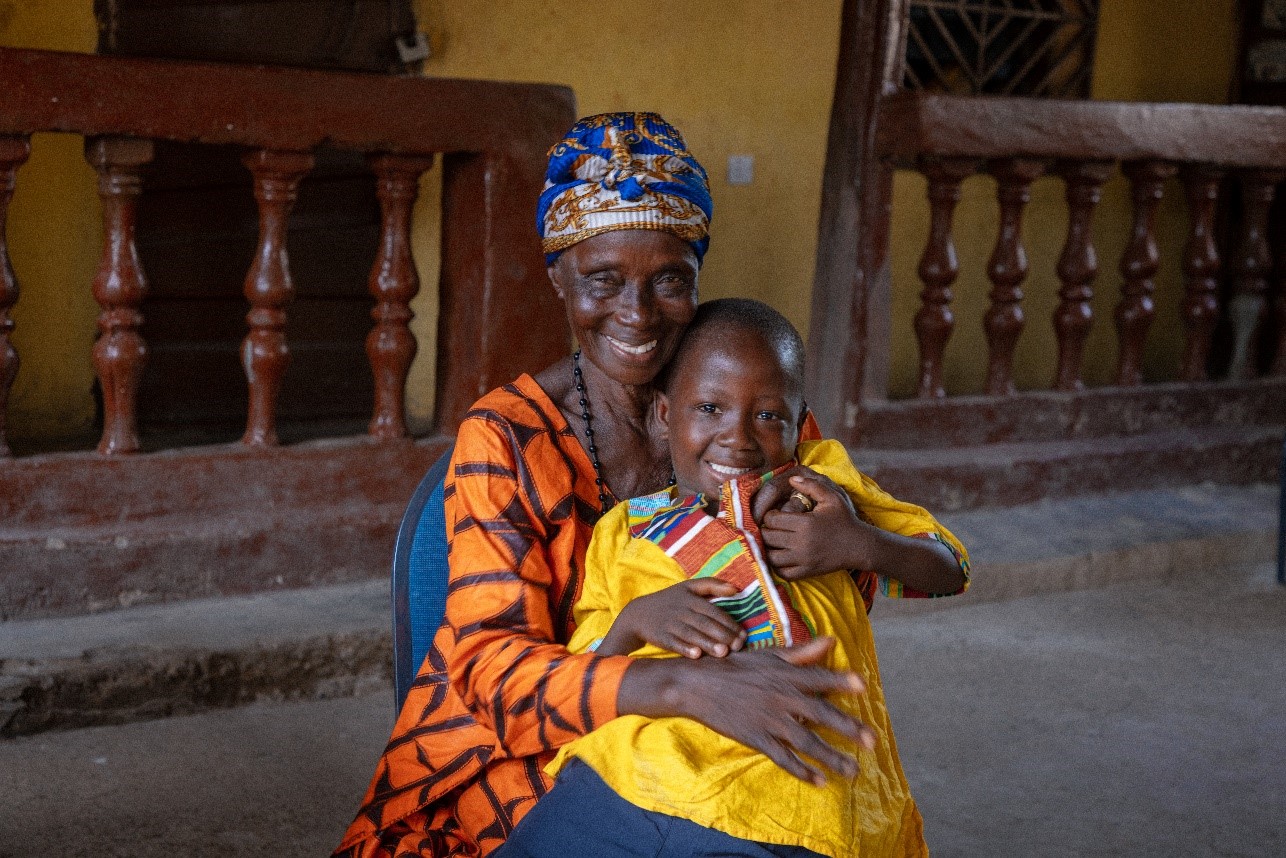
CISMAT takes a holistic approach to TB from prevention through treatment for all ages, allowing communities to stay healthy and sustain their livelihoods.
For people like Alie Kargbo, a tailor, this support has been essential. Timely care allowed him to recover from TB and return to work, ensuring he could provide for his family.
“When I had TB, I was unable to work and my son, who stayed close to me, was placed on treatment to prevent him from getting sick,” recalls Alie Kargbo. “It was very difficult at first, but once I started taking the drugs, I began to feel better. People used to isolate and avoid me, and even walking was hard. Now I can walk, sit at my machine, and work. I want to encourage everyone: TB is curable. If you get sick, go to the hospital, get tested, and follow the treatment – you will get better.”
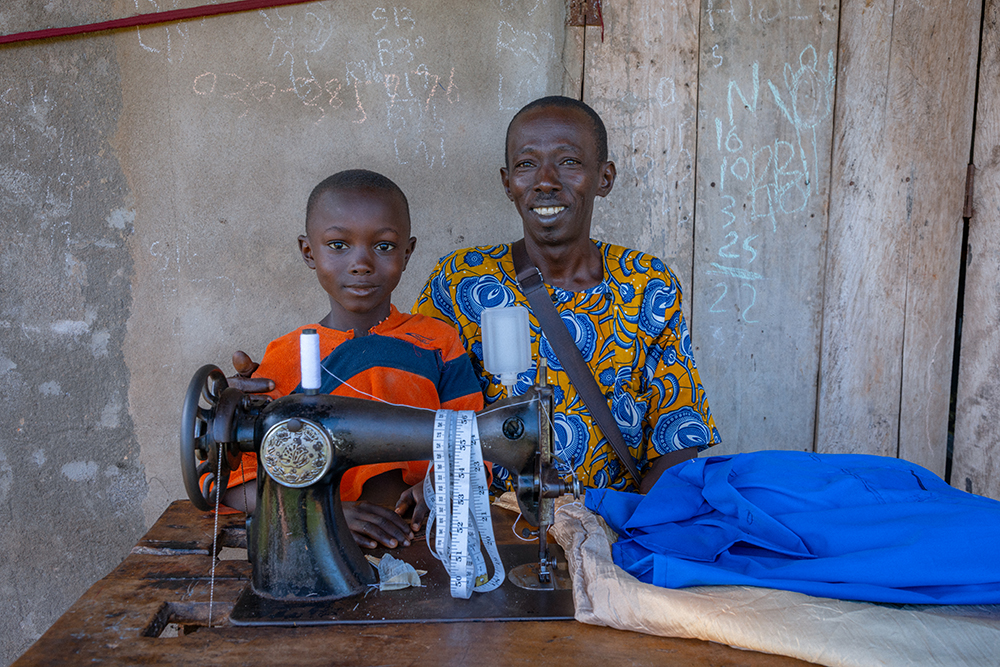
Seeing families recover and ensuring they are protected from TB is what motivates CHWs to continue their work despite the challenges.
“We have passion in our work. We want to see our brothers and sisters live, not die, from TB. We want to eliminate the negative ideas people have about the disease. There are so many people with TB who need encouragement and hope. We still have the passion to save lives,” says one Michaela Phino, community health worker in Gbere Junction.
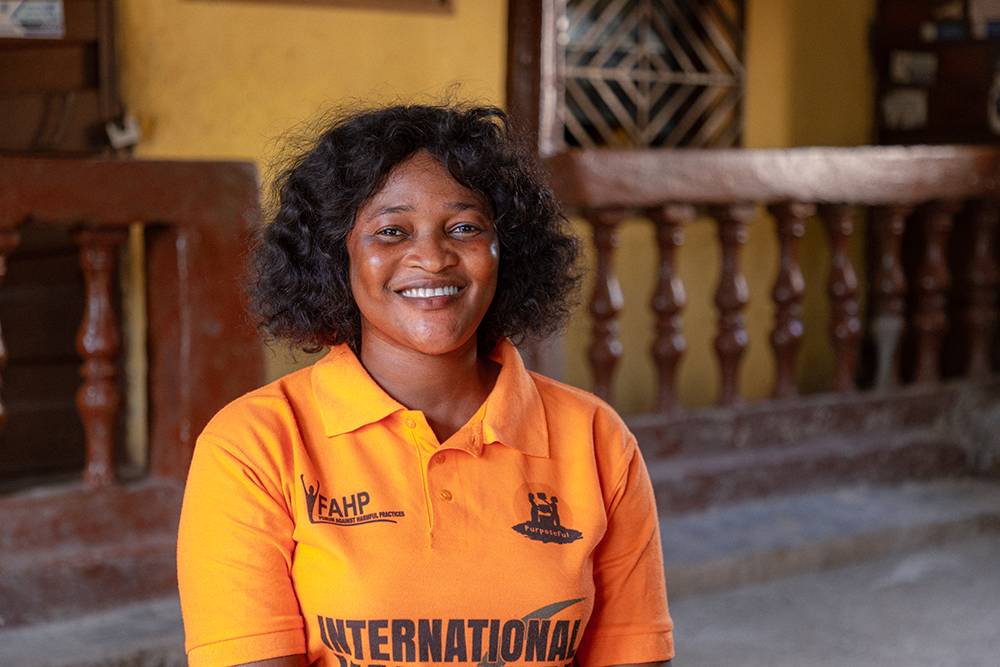
Since its launch in 2018, IMPAACT4TB has transformed TB prevention. In Sierra Leone, this has meant higher uptake of shorter treatments, greater community trust, and more families protected from TB.
Globally, the project has shortened treatment regimens, introduced child-friendly formulations, and made preventive care more affordable and easier to complete.
Raising awareness, reducing stigma, and bringing TB preventive treatment to underserved communities is essential to ending a disease that continues to claim too many lives every year. Sierra Leone’s experience shows that community-driven approaches to prevention can turn the tide against this deadly but preventable disease.